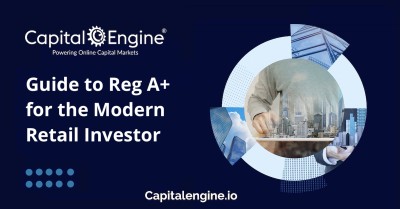SEC PROPOSES RULE CHANGES TO HARMONIZE, SIMPLIFY AND IMPROVE THE EXEMPT OFFERING FRAMEWORK

SEC PROPOSES RULE CHANGES TO HARMONIZE, SIMPLIFY AND IMPROVE THE EXEMPT OFFERING FRAMEWORK
March, 2020
The Securities and Exchange Commission today announced that it has voted to propose a set of amendments that would harmonize, simplify, and improve the exempt offering framework to promote capital formation and expand investment opportunities while preserving and enhancing important investor protections.
Offerings of securities must be either registered with the Commission or qualify for an exemption from the Commission’s registration requirements. A majority of entrepreneurs and emerging businesses raise capital using the exempt offering framework. This capital formation activity ranges from seed capital for new businesses to growth capital for companies on the path to an initial public offering. The proposals are the most recent step in the Commission’s ongoing efforts to assess the capital raising framework as a whole and improve it for the benefit of investors, entrepreneurs, and more seasoned issuers.
The Commission’s proposals are substantially informed by public input received in response to the Commission’s June 2019 concept release on the harmonization of securities offering exemptions. The proposed amendments, which reflect a comprehensive retrospective review of the patchwork system built over many decades, seek to address gaps and complexities in the exempt offering framework that may impede access to capital for issuers and access to investment opportunities for investors. The current framework has 10 exemptions or safe harbors, each with disparate requirements. The proposed rules are focused on reducing friction points in the offering framework to help market participants navigate the exempt offering process. For example, under the proposed rules an issuer in a qualified opportunity zone would have a clearer framework for how to conduct exempt offerings targeted to various investors, including community members, while still complying with important investor protections.
“Emerging companies—from early-stage start-ups seeking seed capital to companies that are on a path to become a public reporting company—use the exempt offering rules to access critical capital needed to create jobs and scale their businesses,” said Chairman Jay Clayton. “The complexity of the current framework is confusing for many involved in the process, particularly for those smaller companies whose limited resources spent on navigating our overly complex rules are diverted from direct investments in the companies’ growth. These proposals are intended to create a more rational framework that better allows entrepreneurs to access capital while preserving and enhancing important investor protections.”
The Commission today also released a staff report on the impact of Regulation A on capital formation and investor protection, which was required to be provided to the Commission no later than five years following the 2015 adoption of amendments to Regulation A.
The public comment period for the proposed rule amendments will remain open for 60 days following publication of the release in the Federal Register.
The Commission proposed revisions to the current offering and investment limits for certain exemptions:
Read more...
About Capital Engine™
Capital Engine™ is a financial technology company, providing investment professionals and advisors (1031 Exchanges, Broker Dealers, Family Offices, Wealth Managers, Incubators, Accelerators, RIAs, GP/LPs and real estate funds) with customized SaaS solutions to power private label capital and alternative investment platforms, with a strong focus on investor management services.
Capital Engine's software helps leverage the opportunity to better originate and showcase a diverse selection of private investment deals and offer these to investors (HNW, UHNW and Family Office) i.e. a deal’s potential viability can be better assessed, market appetite determined and transaction promptly closed.
Strategic Partnership Model
Our business model is to partner with industry experts in real estate, venture capital, healthcare, renewable energy, cannabis, impact funding and philanthropy, in setting up online platforms, marketplaces and trading exchanges using our software.
Click for more info or to request an online demo
Offerings of securities must be either registered with the Commission or qualify for an exemption from the Commission’s registration requirements. A majority of entrepreneurs and emerging businesses raise capital using the exempt offering framework. This capital formation activity ranges from seed capital for new businesses to growth capital for companies on the path to an initial public offering. The proposals are the most recent step in the Commission’s ongoing efforts to assess the capital raising framework as a whole and improve it for the benefit of investors, entrepreneurs, and more seasoned issuers.
The Commission’s proposals are substantially informed by public input received in response to the Commission’s June 2019 concept release on the harmonization of securities offering exemptions. The proposed amendments, which reflect a comprehensive retrospective review of the patchwork system built over many decades, seek to address gaps and complexities in the exempt offering framework that may impede access to capital for issuers and access to investment opportunities for investors. The current framework has 10 exemptions or safe harbors, each with disparate requirements. The proposed rules are focused on reducing friction points in the offering framework to help market participants navigate the exempt offering process. For example, under the proposed rules an issuer in a qualified opportunity zone would have a clearer framework for how to conduct exempt offerings targeted to various investors, including community members, while still complying with important investor protections.
“Emerging companies—from early-stage start-ups seeking seed capital to companies that are on a path to become a public reporting company—use the exempt offering rules to access critical capital needed to create jobs and scale their businesses,” said Chairman Jay Clayton. “The complexity of the current framework is confusing for many involved in the process, particularly for those smaller companies whose limited resources spent on navigating our overly complex rules are diverted from direct investments in the companies’ growth. These proposals are intended to create a more rational framework that better allows entrepreneurs to access capital while preserving and enhancing important investor protections.”
The Commission today also released a staff report on the impact of Regulation A on capital formation and investor protection, which was required to be provided to the Commission no later than five years following the 2015 adoption of amendments to Regulation A.
The public comment period for the proposed rule amendments will remain open for 60 days following publication of the release in the Federal Register.
The Commission proposed revisions to the current offering and investment limits for certain exemptions:
| Regulation A |
|
| Regulation Crowdfunding |
|
| Rule 504 of Regulation D |
|
Read more...
About Capital Engine™
Capital Engine™ is a financial technology company, providing investment professionals and advisors (1031 Exchanges, Broker Dealers, Family Offices, Wealth Managers, Incubators, Accelerators, RIAs, GP/LPs and real estate funds) with customized SaaS solutions to power private label capital and alternative investment platforms, with a strong focus on investor management services.
Capital Engine's software helps leverage the opportunity to better originate and showcase a diverse selection of private investment deals and offer these to investors (HNW, UHNW and Family Office) i.e. a deal’s potential viability can be better assessed, market appetite determined and transaction promptly closed.
Strategic Partnership Model
Our business model is to partner with industry experts in real estate, venture capital, healthcare, renewable energy, cannabis, impact funding and philanthropy, in setting up online platforms, marketplaces and trading exchanges using our software.
Click for more info or to request an online demo
Latest Articles





